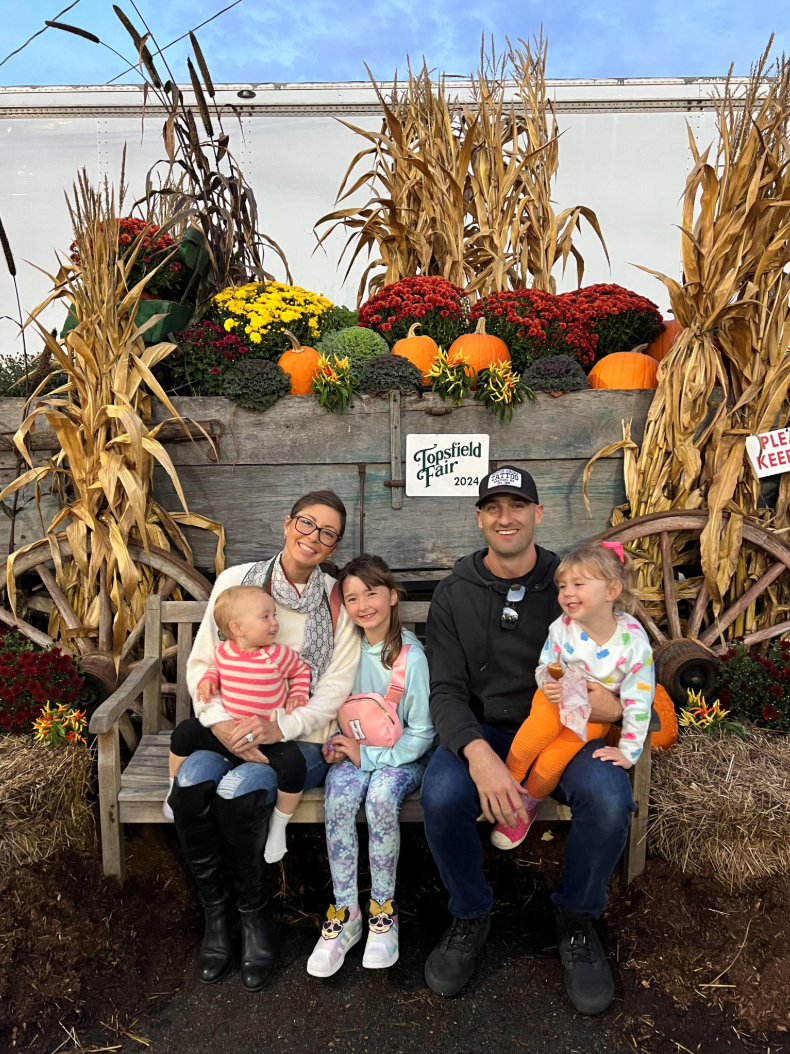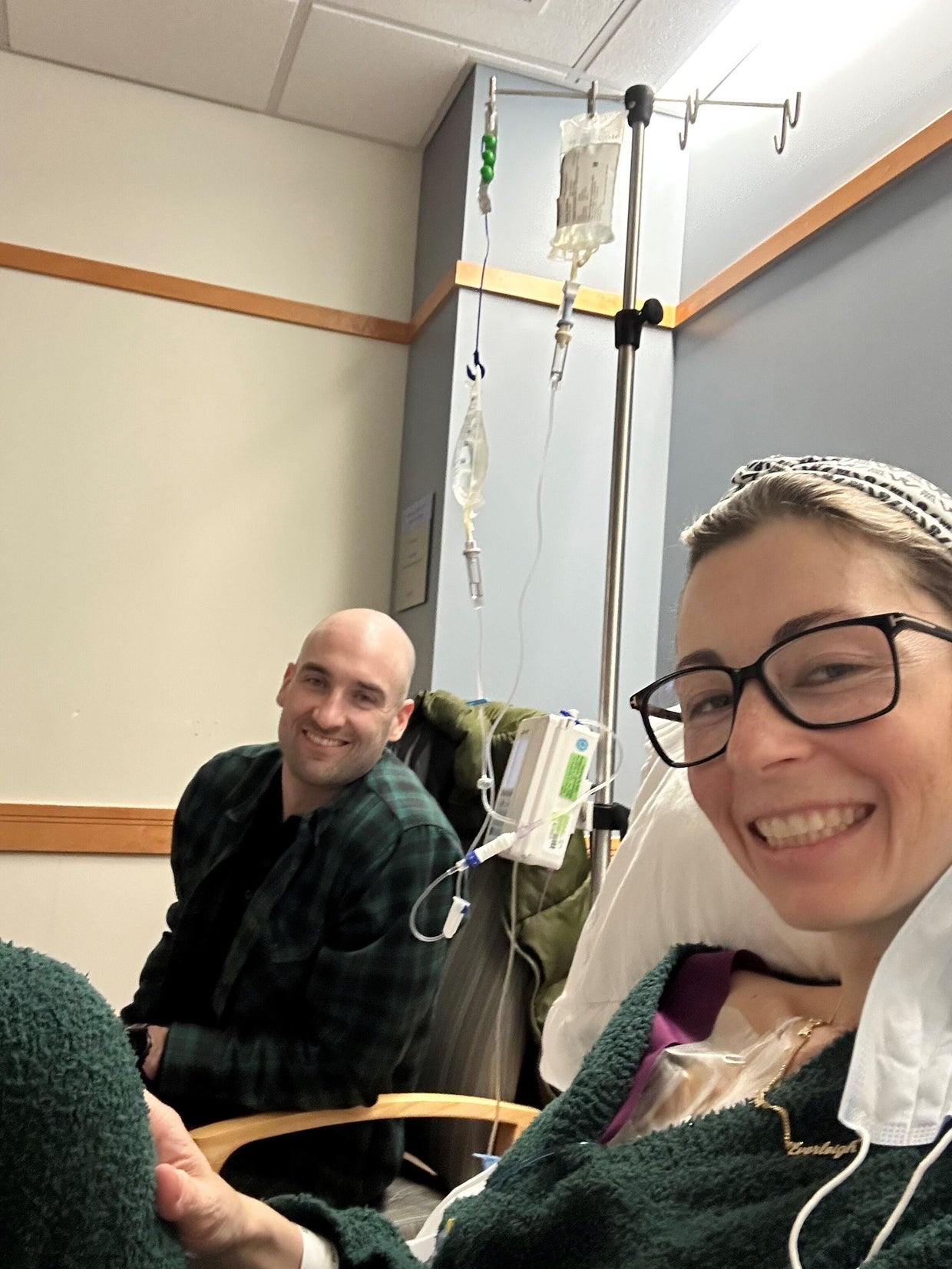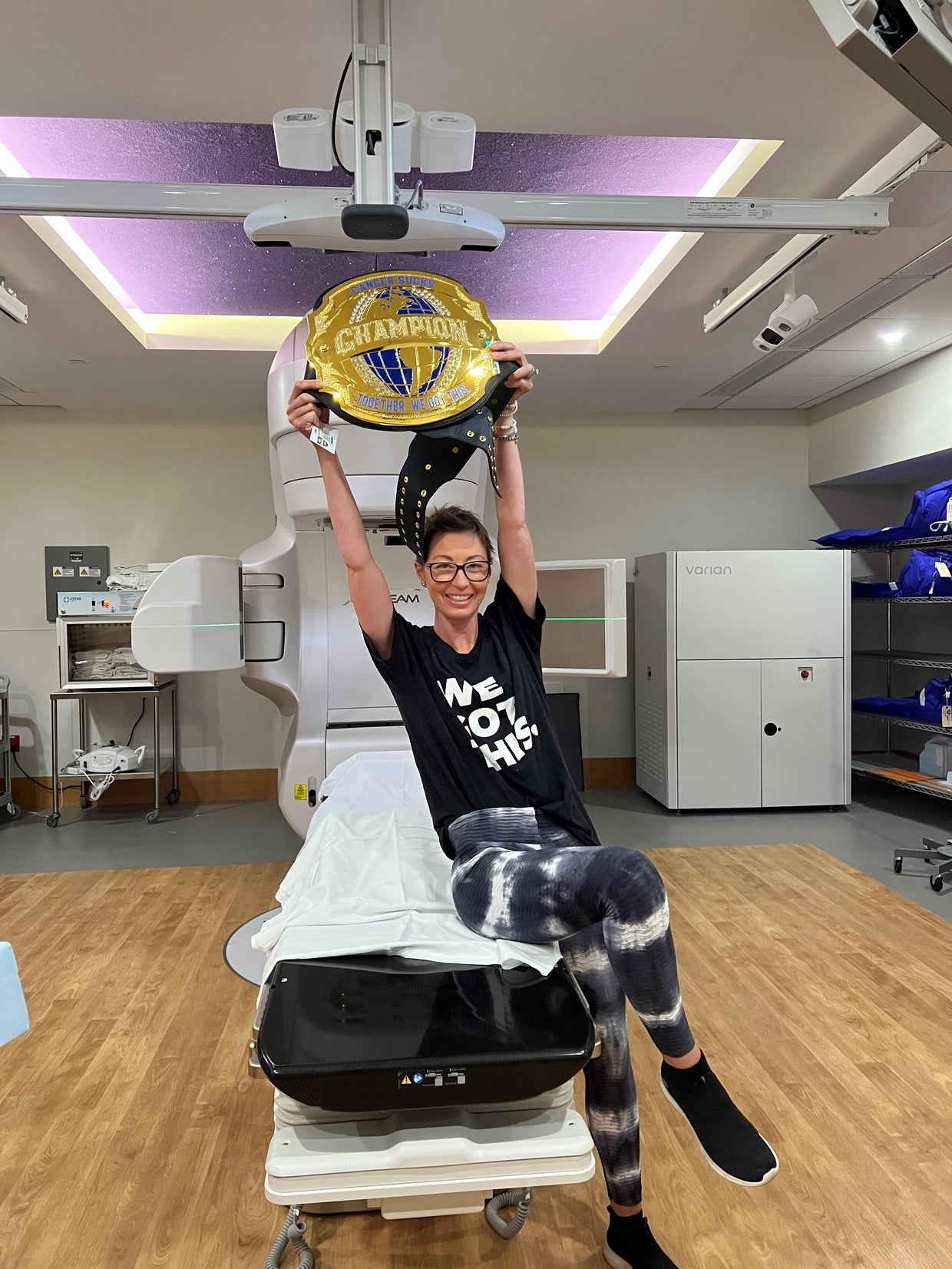Doctors said a 34-year-old mom was experiencing normal postpartum symptoms. She was then diagnosed with advanced cancer
In September 2023, Heather Barry knew something was wrong.
She had welcomed her third daughter in May, and while the delivery had been complicated, Barry had recovered. She was "starting to get (her) groove back," but over the summer she began struggling with constipation and kept finding blood in her stool. During her annual OB-GYN visit in September, her gynecologist said it was a common postpartum symptom and recommended stool softeners, a high-fiber diet and pelvic floor therapy.
"She reassured me. She even said to me 'Give it a year and see how it goes,'" Barry told CBS News.
Later in the month, an annual physical with her primary care physician went similarly. But it didn't put her at ease.
Her symptoms were worsening and causing her to eat less. She was extremely uncomfortable. In October, she saw a colorectal surgeon who diagnosed her with hemorrhoids. The surgeon said the hemorrhoids were the cause of her issues. Again, Barry was recommended stool softeners and a high-fiber diet.
"I felt like I was on a hamster wheel. People kept telling me 'You're OK, you're OK,' but I knew I wasn't OK," Barry said.
She was taking multiple doses of Miralax, a laxative powder for occasional constipation, every day. She couldn't eat and kept losing weight. Every time she went to the bathroom, "there was blood in the toilet," she said.
By the end of October, Barry had lost 30 pounds and changed her primary care physician. Her new doctor again diagnosed her with hemorrhoids. She was prescribed a hydrocortisone cream, told to look into pelvic floor therapy, and referred to a gastroenterologist.
The gastroenterologist suggested Barry might be struggling with a hormone imbalance and again recommended stool softeners and a high-fiber diet. Barry said she felt like she was "going mental" as she received the same advice over and over.
"I was in so much pain every night. The only reprieve I could get was when I was in the shower, I would just lay on the floor," Barry said. "I felt like I was screaming and nobody was listening to me."
In December, Barry started pelvic floor therapy. Her physical therapist was alarmed by her condition and helped her get an appointment with another expert. That doctor scheduled her for a test that found dysfunction in her bowels. In January 2024, she saw another gastroenterologist. She was sedated for a colonoscopy and endoscopy. When she woke up, the room was buzzing.
"I was barely even woken up yet ... and everybody was moving around really quickly," Barry said. "I was like 'What's going on?' And the doctor came in, and he was like, 'You need to go. We need to send you over to the colorectal surgery department right now.' He was like 'I'm 99% sure that you have cancer.'"
Minutes later, the diagnosis was official: the 34-year-old mother of three kids under 6 had Stage III colon cancer.
Colorectal cancer in young adults
Barry, now 36, is among the growing number of young adults being diagnosed with colorectal cancer. A 2024 study from the American Cancer Society found that colorectal cancer, once the fourth-leading cause of cancer deaths for people younger than 50, was now the leading cause of death for men and the second cause of death for women. In general, cancer is the second leading cause of death in the United States, according to the Centers for Disease Control and Prevention.
No one knows why colorectal cancer rates are rising in young people. CBS News chief medical correspondent Dr. Jon LaPook, a gastroenterologist, said in 2024 that possible reasons might include a rise in obesity or changes in the gut microbiome caused by diet or lifestyle factors.
Screening guidelines have been altered, recommending adults with average risk get their first screening at 45. People with a family history of colorectal cancer are supposed to start getting screenings 10 years before the age their family member was diagnosed. Barry said one doctor asked if she had a family history of the disease but since she didn't, the possibility never came up again.
Ted Hong, the director of gastrointestinal radiation oncology at Mass General Hospital who oversaw Barry's treatment, said her struggle to be diagnosed is "not unusual for young patients who are diagnosed with colon cancer."
"This new phenomenon of younger patients, certainly patients as young as Heather, having colorectal cancer is definitely not something that is on the radar of most primary care-based physicians," Hong said. "It does take a lot (of) self-advocacy and sometimes bouncing around to get to the diagnosis."
Barry said being told she had cancer was "the scariest moment" of her life, but left her "almost relieved."
"I felt like 'Oh my God, I haven't been crazy, something has been going on, and I knew it was going on,'" Barry recalled.
"Push and don't stop pushing"
Two days after her diagnosis, Barry sat down with Dr. Robert Goldstone, a colorectal oncologist at Mass General Cancer Center. He recommended an aggressive treatment plan. They would start with a colostomy to relieve her bathroom issues and allow her to eat. She would also have chemotherapy and radiation to treat the five-centimeter tumor in her colon, followed by surgery. Hong managed the treatment.
On March 1, the first day of Colorectal Cancer Awareness Month, Barry began chemotherapy. She had eight sessions, one every other week. The powerful medication was delivered through a port in her arm over 48 hours and caused strange symptoms, including cramping and dysfunction in her hands and an extreme sensitivity to cold. In June, she finished the chemotherapy. After a three-week break, she underwent nearly six weeks of radiation treatment.
In October 2024, Barry underwent surgery to resect the remaining tumor from her colon. The surgery also converted her colostomy to an ileostomy so she could begin to regain function in her colon. Throughout it all, Barry focused on making "something that's not normal, normal" for her three young daughters.
"The end goal was to beat the heck out of this and get to that finish line," she said.
Now, six months after her surgery, things are settling down again for Barry and her family. She had her ileostomy reversed in January 2025. She has regained much of the function in her colon, and she and her family are finding new normalcy.
Barry will remain under close surveillance, Hong said, including follow-up visits every three months and an annual colonoscopy. In two or three years, if the cancer has not returned, the follow-ups will "eventually start to get spaced out," he said. Her daughters will also be screened for colorectal cancer starting at 25 years old, Hong said, following the recommendation that people whose parents have such cancers get screened 10 years before their parents' age at onset.
Barry said that since her diagnosis, she has heard from several other people like her: Women in their 30s, diagnosed with colorectal cancer, who struggled to get a diagnosis. She said she hopes her story inspires others to fight for answers when they feel something is wrong.
"If something doesn't feel right, if something just isn't sitting well with you, push and don't stop pushing," Barry said. "If I listened and kept listening and didn't keep going, I don't know where I would be today."






